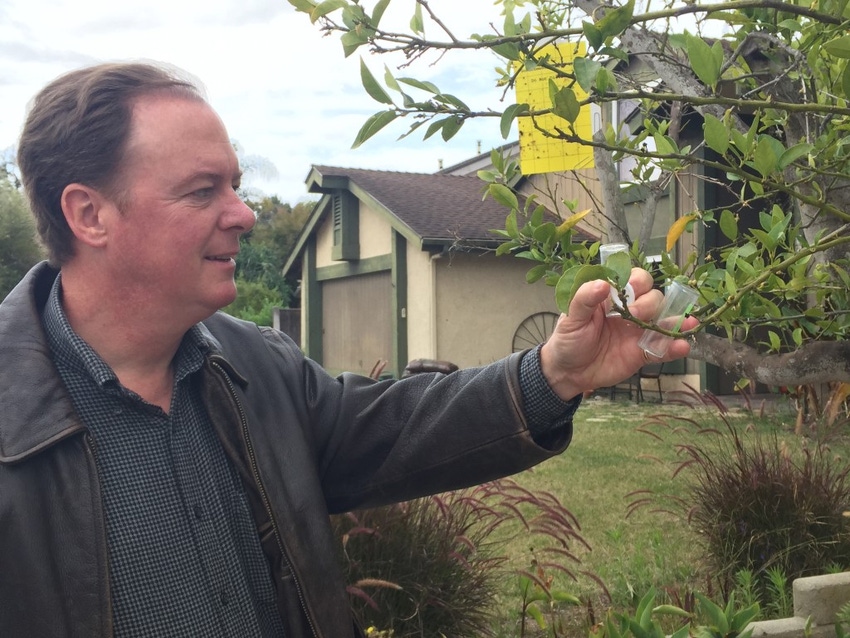
Biocontrol no silver bullet for ACP in commercial citrus
Citrus growers must continue to control the spread of the Asian citrus psyllid and lower populations of the pest through the best means possible. While biocontrol remains a viable control tool in the urban setting, it is not the silver bullet for commercial groves.
September 15, 2016

(Commentary)
While biocontrol is a helpful tool for the management of Asian citrus psyllid (ACP) populations in residential areas of California, it has limited value in commercial citrus production.
With biocontrol efforts expanding and the production of the Tamarixia radiata wasp increasing, citrus growers may begin to rely too heavily on biocontrol as the solution to the threat of the disease Huanglongbing (HLB). It is crucial that citrus growers remain focused on effective pest management programs for their groves including the use of insecticides.
The Asian citrus psyllid biocontrol project in California implements multiple releases of the Tamarixia radiata and Diaphorencyrtus aligarhensis, which are natural enemies of the psyllid.
The goal is to establish these exotic parasitoids across ACP-infested regions of the state and ultimately lower populations of the pest. ACP control is critical to the survival of the state’s citrus industry as it can spread the fatal citrus tree disease HLB.
To date, the parasitoids have been exclusively released in Southern California where the psyllid is widely established and eradication is no longer possible. In the urban areas of this region, biocontrol is considered the only viable option for controlling the pest. The use of pesticides is not practical in this large area where there is a high volume of citrus in residential backyards.
Recently, the California Department of Food and Agriculture began releasing Tamarixia radiata in urban areas of Kern County where ACP populations are rapidly growing. The effort is in the research stages and it is yet to be determined if Tamarixia radiata will establish in the region.
This research is important as very high levels of vector control are needed to stop the transmission of HLB, and reduction of the ACP in urban areas through the use of biocontrol will help to reduce the spread of the psyllid.
Biocontrol is also beneficial when released outside of the 400-meter buffer treatment areas adjacent to commercial citrus receiving area-wide treatments, and outside the 800-meter treatment areas in the HLB quarantine.
Releases are also conducted in abandoned citrus groves in areas where the state’s ACP control program is not making efforts to eradicate or apply treatments to psyllid-infested areas.
Western Farm Press Daily – free agricultural news delivered to your Inbox.
For commercial groves, however, insecticides are more effective in reducing ACP populations than parasitoids, including Tamarixia radiata. Additionally, pesticides may harm parasitoids and parasitism rates are not high enough to prevent the spread of HLB.
It is also important to note that research has not shown augmentative releases are an effective or economical practice. At $0.51 per Tamarixia, it is too costly nor is there sufficient production for this purpose.
Research also shows that the best a grower can hope for is up to 30 percent control through the use of biocontrol. This is not enough to protect citrus groves from the devastation of HLB.
Citrus growers must continue to control the spread of ACP and lower populations of the pest through the best means possible. While biocontrol remains a viable control tool in the urban setting, it is not the silver bullet for commercial groves.
(Note: Dr. David Morgan is the program manager for Asian citrus psyllid biological control at the California Department of Food and Agriculture.)
You May Also Like



